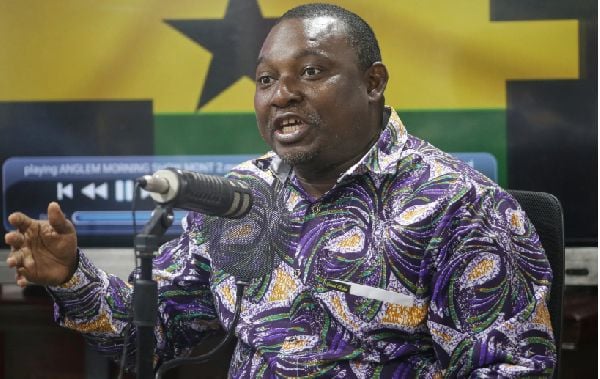Solomon Owusu, a prominent member of the Movement for Change political group, has launched a scathing attack on the New Patriotic Party (NPP), alleging a deep-seated culture of corruption within the party and specifically targeting supporters of former Vice President Dr. Mahamudu Bawumia. Owusu claims that a significant majority of former NPP appointees currently entangled in corruption trials were, in fact, loyalists of Dr. Bawumia during the party’s internal flagbearer race in 2023. He pointed to the national service ghost names scandal, implicating individuals like Gifty Oware and Mustapha Ussif, both alleged Bawumia loyalists, as evidence of this pervasive corruption. Owusu contends that these individuals leveraged their positions and access to state funds to influence the outcome of the party’s internal elections, flaunting wealth accumulated through illicit means. This, he argues, illustrates a pattern of financial impropriety within the Bawumia camp.
Owusu’s accusations paint a picture of a party riddled with financial misconduct, with the 2023 internal elections serving as a focal point for this alleged corruption. He claims that the exorbitant sums of money spent by Bawumia’s supporters during this period, estimated to be in the hundreds of millions of Ghana Cedis, were indicative of their misuse of public resources. The implication is that these funds, rather than being used for public good, were diverted to finance political campaigns and secure influence within the NPP. This, according to Owusu, demonstrates a blatant disregard for ethical conduct and a prioritization of personal gain over the welfare of the Ghanaian people.
The timing of Owusu’s pronouncements, just ahead of the NPP’s upcoming flagbearer election scheduled for January 31, 2026, adds a further layer of political intrigue. His allegations serve to cast a shadow over the potential candidacy of Dr. Bawumia and raise questions about the integrity of the entire field of contenders. Owusu explicitly dismisses all the anticipated candidates, including Bawumia, Kennedy Agyapong, and Bryan Acheampong, as unqualified to lead the nation. He argues that none of these individuals possesses the necessary moral compass or unwavering commitment to the country’s well-being to effectively govern. This sweeping condemnation of the NPP’s potential leadership further amplifies his message of widespread corruption and ineptitude within the party.
In a rather unconventional twist, Owusu puts forth his own preferred candidate for the 2028 presidential election: Alan John Kwadwo Kyerematen. Framing his argument within a historical context, Owusu draws parallels between past Ghanaian presidents, starting with Jerry John Rawlings and John Evans Atta Mills, whom he portrays as positive figures. He then contrasts their leadership with that of Nana Akufo-Addo, whose presidency he characterizes as a period of decline and misguided policies. This, he alleges, was only rectified by the return of John Mahama, who restored stability to the nation. Owusu’s endorsement of Kyerematen positions him as the natural successor in this lineage of leadership, suggesting that he embodies the qualities needed to guide Ghana towards a brighter future.
Owusu’s narrative constructs a clear dichotomy between what he perceives as the corrupt and self-serving nature of the current NPP leadership and the potential for positive change embodied by Kyerematen. He strategically links the alleged corruption within the Bawumia camp to the broader failures of the Akufo-Addo administration, implying that a vote for any of the current NPP contenders would be a continuation of this detrimental trajectory. By contrast, Kyerematen is presented as a beacon of hope, a figure capable of restoring integrity and stability to the nation.
Ultimately, Owusu’s accusations serve as a potent political maneuver designed to influence public opinion in the lead-up to both the NPP’s internal elections and the 2028 general election. Whether these allegations will be substantiated remains to be seen, but their impact on the political landscape is undeniable. They inject a significant element of controversy into the NPP’s internal dynamics and raise critical questions about the integrity of the party’s leadership. Furthermore, they provide a platform for Owusu to promote his preferred candidate, Alan Kyerematen, and position him as the antithesis of the alleged corruption that has plagued the NPP under Akufo-Addo’s leadership. The long-term consequences of these pronouncements will undoubtedly unfold in the months and years to come, shaping the political discourse and influencing the choices made by the Ghanaian electorate.


